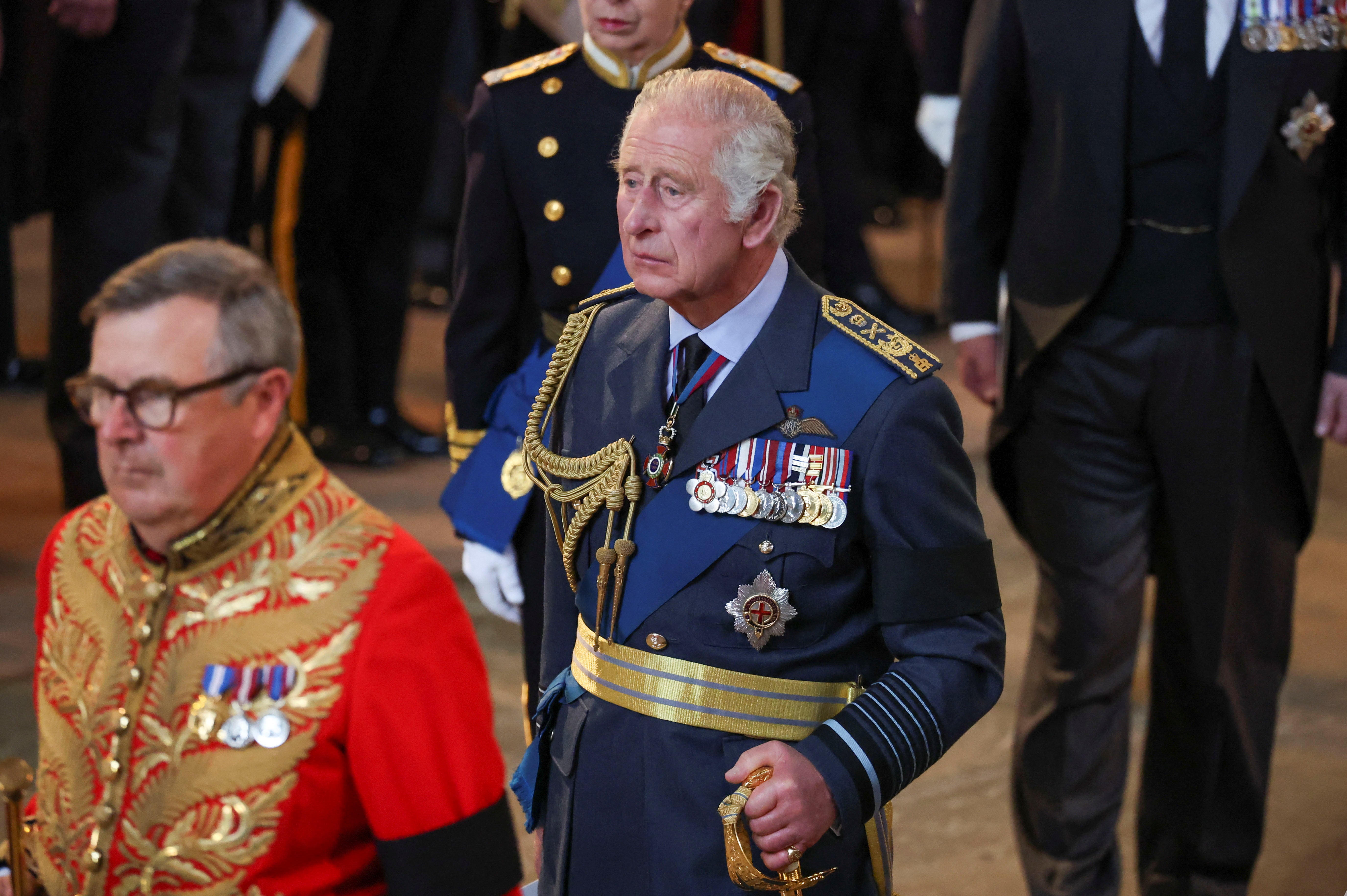How and why to take time to grieve after losing someone you love
Having worked long hours seemingly non-stop, you may be wondering when King Charles III will have a moment to grieve for his mother.

Your support helps us to tell the story
From reproductive rights to climate change to Big Tech, The Independent is on the ground when the story is developing. Whether it's investigating the financials of Elon Musk's pro-Trump PAC or producing our latest documentary, 'The A Word', which shines a light on the American women fighting for reproductive rights, we know how important it is to parse out the facts from the messaging.
At such a critical moment in US history, we need reporters on the ground. Your donation allows us to keep sending journalists to speak to both sides of the story.
The Independent is trusted by Americans across the entire political spectrum. And unlike many other quality news outlets, we choose not to lock Americans out of our reporting and analysis with paywalls. We believe quality journalism should be available to everyone, paid for by those who can afford it.
Your support makes all the difference.After a difficult week since the death of his mother the Queen, King Charles is to have a private day of reflection today, ahead of his mother’s funeral on Monday.
Charles has returned to his Highgrove home in Gloucestershire and is not expected to attend any public events, as was laid out in the planning of the aftermath of the death of the Queen, known as “London Bridge”.
Although the King’s duties may be different from those of the regular working public, he has had to work intense hours over the past week, while also travelling around the UK.
All of this while mourning your mother and taking on a new role is a challenge, to say the least. Perhaps like many of us, the busyness is helping with his grief.
Why do we try and keep busy through tough times?
According to Linda Magistris, founder of The Good Grief Trust, “Keeping active when we are grieving is one of the best coping mechanisms, and physical exercise can be very useful to help us process painful and difficult emotions. It is good to try and do something active each day, if possible, even just a brief walk and talk with a friend in the fresh air, can be beneficial. The early days, when organising a funeral, is a time when we are keeping our mind occupied and the regular connection with friends and family around us, can help support our raw grief.”
Andy Langford is the clinical director, grief counsellor and therapist at bereavement charity Cruse. He explains: “It is entirely understandable you try to keep busy. It is often not a case of wanting to be busy, it is a case of being normal and needing to be.”
For the royals and any other family grieving, he notes there is often a lot to be done. “There are practicalities to deal with, like estate, relationships, care and the funeral. We have to do them or there are ramifications in the long run. We want to honour the person who has died, too.”
We may also use it as an avoidance technique.
“It can feel easier to keep busy and not be submerged in emotion. Putting off the emotion is entirely understandable and it’s fairly normal to move from being very busy, to be with that emotion, whether alone or with others, crying,” says Langford.
What might we neglect if we stay busy?
Pushing aside your own emotions can have damaging repercussions.
“We may be neglecting ourselves and neglecting the people around us,” warns Langford. “In neglecting ourselves, we can end up storing those emotions, which will then end up surfacing later. What we often see, is that emotion has got so much, it can become difficult to think and function. You may see it come up in physical ways; people often talk about physical heartache – pains in your chest, stomach problems, chronic back pain, headaches and migraines. If we push emotion away, it will come out physically in our bodies.”
We may also find ourselves feeling neglected by others. Magistris says: “Often, when we have tried to keep busy in the early days, it is after the funeral that we can feel most isolated. Friends and family go back to their lives and many who are bereaved can feel incredibly lost and alone in their grief. Grief is exhausting and utterly draining, and it is good to try and find a balance, to ensure we look after ourselves, taking it one step at a time, and finding help and support when needed.”
This may involve turning to friends and family, who seem to have gone back to everyday life, and asking for more support.
How does time to mourn help us in the long term?
For Langford, “Providing space for you to grieve takes care of you physically and mentally.”
“When we don’t take that time, we may also miss out on time with the people we love and trust,” he adds. “Sharing stories about people who have died helps us create a space where we are validated. Filling in gaps in our memories of that person and completing it together will help.”
When you are ready and able to slow down, reflect and open up to those around you, you will really be starting the grief process.
“Self-care is important when you are grieving, and acknowledgement that what you are feeling is normal is often a lifeline for those struggling. Finding others who may have been through a similar loss often helps to validate your emotions, and peer to peer support can help to explain a myriad of emotions you may be experiencing,” explains Magistris.